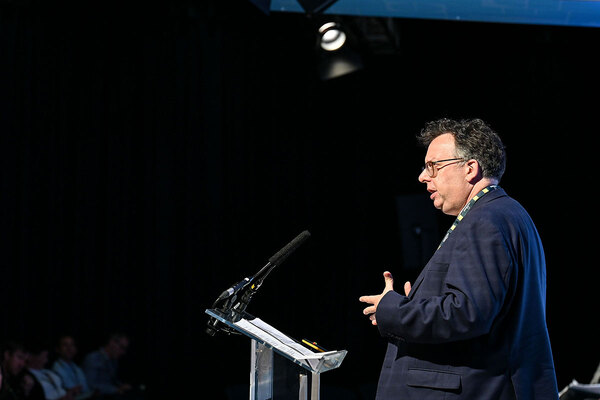
Sam Lister is policy and practice officer at the Chartered Institute of Housing
Look on the bright side
We need to stop focusing on the negative impact of direct payment and realise the opportunities it brings

Sam Lister is policy and practice officer at the Chartered Institute of Housing
There’s a risk that in our eagerness to debate the negative impacts of welfare reform - of which there are undoubtedly many - we’ll fail to harness the opportunities it offers us.
Direct payment of benefits to tenants creates uncertainty around how social landlords ensure rent is paid on time, particularly when some customers don’t have bank accounts.
Many landlords are already doing valuable work with tenants around financial awareness. But some of the solutions to issues raised by direct payment offer the chance for housing associations to tackle financial exclusion like never before.
There are many products out there that enable tenants to pay rent directly to their landlord. Rather than view rent payment in isolation, think about the broader benefits this can bring to a tenant who’s never had a bank account.
For example, Advanced Payment Solutions offers a pre-paid card which is linked to a bank account and used by tenants to complete everyday banking tasks such as bill payments and direct debits. The Co-operative Bank supports this wider introduction of payment methods and has provided the infrastructure which allows APS to link a pre-pay card direct to a bank account. The card offers tenants a range of options with which to pay their rent while opening the door to payment by direct debit gives them access to discounts on energy bills and much more.
It’s up to landlords to take a proactive stance, look for the best products for their tenants and find ways to package them up. By working together - using their bulk buying power to cut costs and share knowledge - housing associations can reduce the risk of rent arrears and cut living costs for tenants.
We’ve already seen the benefits of this approach in local government. A dozen local authorities are working together on the Greater Manchester Fair Energy Scheme to get a better deal on gas and electricity for residents. More than 22,000 have signed up and savings are expected to be up to £250 a year per household which, in turn, helps them pay the rent. These reverse auctions fit well with social landlords, enabling them to go to market and say ‘we have X many tenants who want to buy energy, what will you offer us?’.
Collaborative procurement like this could extend to a whole range of products and services, from home insurance to savings, and even to purchasing frameworks to get the best deal possible. The key is to be proactive about the things landlords can take control of and make them part of a long-term vision for their organisation and tenants.
Sam Lister is policy and practice officer at the Chartered Institute of Housing. He will be discussing how procurement can address the challenges of welfare reform at Procurement for Housing Live in Manchester on 27 June







